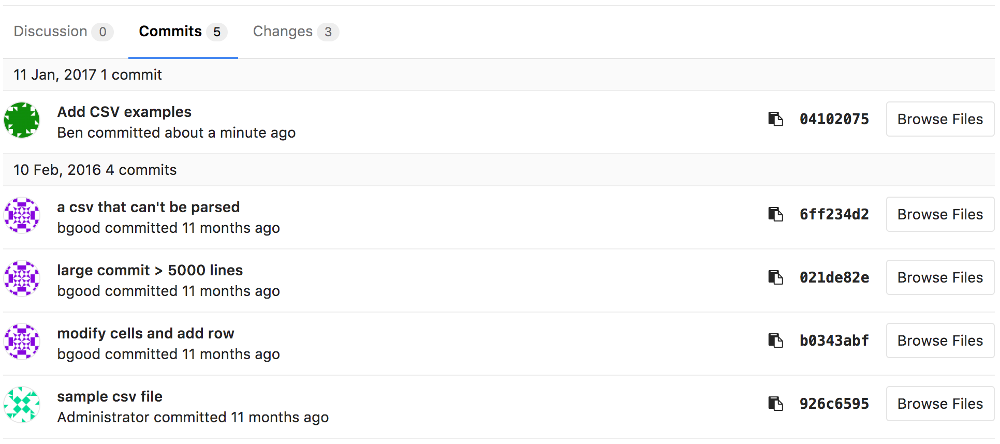Squash and merge
Combine all commits of your merge request into one and retain a clean history.
Overview
Squashing lets you tidy up the commit history of a branch when accepting a merge request. It applies all of the changes in the merge request as a single commit, and then merges that commit using the merge method set for the project.
In other words, squashing a merge request turns a long list of commits:
Into a single commit on merge:
The squashed commit's commit message is the merge request title. And note that the squashed commit is still followed by a merge commit, as the merge method for this example repository uses a merge commit. Squashing also works with the fast-forward merge strategy, see squashing and fast-forward merge for more details.
Use cases
When working on a feature branch, you sometimes want to commit your current progress, but don't really care about the commit messages. Those 'work in progress commits' don't necessarily contain important information and as such you'd rather not include them in your target branch.
With squash and merge, when the merge request is ready to be merged, all you have to do is enable squashing before you press merge to join the commits include in the merge request into a single commit.
This way, the history of your base branch remains clean with meaningful commit messages and is simpler to revert if necessary.
Enabling squash for a merge request
Anyone who can create or edit a merge request can choose for it to be squashed on the merge request form:
This can then be overridden at the time of accepting the merge request:
Commit metadata for squashed commits
The squashed commit has the following metadata:
- Message: the title of the merge request.
- Author: the author of the merge request.
- Committer: the user who initiated the squash.
Squash and fast-forward merge
When a project has the fast-forward merge setting enabled, the merge request must be able to be fast-forwarded without squashing in order to squash it. This is because squashing is only available when accepting a merge request, so a merge request may need to be rebased before squashing, even though squashing can itself be considered equivalent to rebasing.



